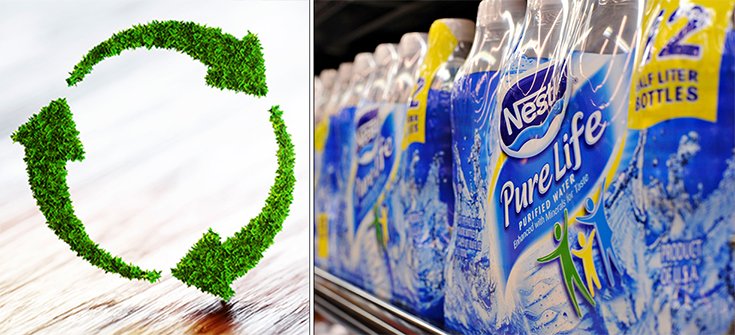Nestlé Vows to Make All Its Packaging Recyclable by 2025

Nestlé announced an initiative in April that’s aimed at making all its packaging recyclable by 2025, but environmentalists say the plan doesn’t go far enough.
Nestlé Chief Executive Mark Schneider said in a statement:
“Plastic waste is one of the biggest sustainability issues the world is facing today. Tackling it requires a collective approach.” [1]
The company said it would focus its efforts on three specific aims:
- Eliminating non-recyclable plastics
- Encouraging the use of plastics that allow better recycling rates
- Getting rid of or changing complex combinations of packaging materials
Duncan Pollard, Nestlé’s sustainability expert, said:
“We are working on changing the colours used for our plastic packaging. Lighter colours are easier to recycle.” [1]
The environmental group Greenpeace calls the plan “greenwashing,” saying that the world’s largest packaged foods company has missed the mark by failing to include clear targets or a timeline to reduce and eventually phase out single-use plastics. [2]
Greenpeace oceans campaigner Graham Forbes said:
“Nestlé’s statement on plastic packaging includes more of the same greenwashing baby steps to tackle a crisis it helped to create. It will not actually move the needle toward the reduction of single-use plastics in a meaningful way, and sets an incredibly low standard as the largest food and beverage company in the world.
The statement is full of ambiguous or nonexistent targets, relies on ‘ambitions’ to do better, and puts the responsibility on customers rather than the company to clean up its own plastic pollution. “[2]
Pollard argues that in order for to reduce plastic waste, there must be a recycling infrastructure in place, particularly in South-Eastern Asian countries such as the Philippines, Malaysia, Indonesia, and Thailand, where drastic improvement is needed [1]
Greenpeace has a point, though. Group volunteers discovered during a 2017 beach cleanup on Freedom Island in the Philippines – the third worst polluter of the world’s oceans – that there were more pieces of litter from Nestlé products on the beach than from any other company. [2]
Environmentalists are understandably skeptical about Nestlé’s plan for other reasons as well. The company isn’t known for a commitment to conservation or to customers. This is the same company whose former CEO once said that clean water isn’t a human right, and the company essentially stole (bought cheaply and privatized) water from drought-stricken towns.
Furthermore, Nestlé has been sued by child slaves in the past, and the U.S. Supreme Court ruled in the children’s favor.
Sources:
[1] Reuters
[2] EcoWatch

I’ve been boycotting all Nestle products since the 1970s because of dead-end [literally] marketing tactics for their infant formula in poor countries. They are still using underhanded deals to maintain their huge market share of way too many products. I stand with Greenpeace and Plastic Pollution Solution against this malign company, Carole Erickson, RN, PHN